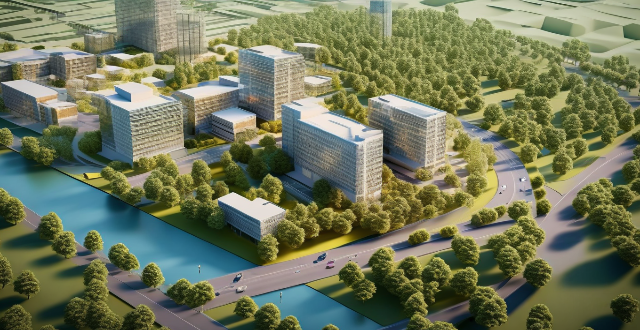Sporting events, especially major ones like the Olympics or FIFA World Cup, significantly impact city growth and regeneration. This influence spans infrastructure improvements, tourism boost, economic activity, urban planning, and social-cultural dynamics. Cities often invest in new public transport systems, upgraded roads, modernized utilities, and waste management strategies during these events. The global spotlight attracts international visitors and creates temporary jobs and business opportunities. Hosting major events involves redeveloping neglected areas and adopting sustainable development practices. Community engagement, cultural exchange, and a sense of pride are also fostered. However, careful resource management and effective planning are crucial for long-term positive outcomes beyond the event's duration.

Major Sporting Events and Their Influence on City Growth and Regeneration
Introduction
Sporting events, particularly major ones such as the Olympics or the FIFA World Cup, have a significant impact on the growth and regeneration of cities. This influence can be seen in various aspects of urban development, from infrastructure improvements to increased tourism and economic activity.
Infrastructure Development
Improved Transportation Networks
- New Public Transport Systems: Cities often invest in new public transport systems like metro lines, light rail, and bus rapid transit to improve connectivity during the event.
- Upgraded Roads and Highways: To accommodate the influx of visitors, existing roads are expanded and new ones are constructed.
Modernized Utilities
- Enhanced Water and Electricity Supply: Cities upgrade their utility networks to meet the demands of the event and future growth.
- Advanced Waste Management: New waste management strategies are implemented to ensure cleanliness and sustainability.
Economic Boost
Increased Tourism
- Attraction of International Visitors: The global spotlight on the host city attracts tourists from around the world.
- Long-Term Tourism Potential: The legacy of the event can lead to continued tourism interest.
Job Creation and Business Opportunities
- Temporary Jobs: Event preparation and execution create numerous temporary job opportunities.
- Business Expansion: Local businesses benefit from an increase in consumer spending.
Urban Regeneration and Planning
Revitalization of Areas
- Redevelopment of Neglected Areas: Hosting major events often involves the redevelopment of underutilized or blighted areas.
- Beautification Projects: Public spaces are enhanced with new parks, promenades, and other amenities.
Sustainable Development Practices
- Green Spaces and Eco-friendly Designs: Many cities adopt sustainable practices in their planning and construction processes.
- Legacy Use of Facilities: Post-event, facilities are converted for public use, promoting health and recreation.
Social and Cultural Impact
Community Engagement and Pride
- Local Participation: Residents are encouraged to participate in volunteering and supporting the event.
- Sense of Community: Major events foster a sense of unity and pride among locals.
Cultural Exchange
- International Exposure: Local culture is showcased to an international audience.
- Cultural Diversity: The influx of visitors brings diverse cultures to the city.
Conclusion
Major sporting events act as catalysts for city growth and regeneration by driving infrastructure development, boosting the economy, promoting urban planning and revitalization, and enhancing social and cultural dynamics. While these events offer numerous benefits, it's important for cities to carefully manage resources and plan effectively to ensure long-term positive outcomes beyond the short-lived nature of the event itself.